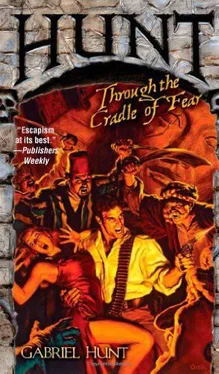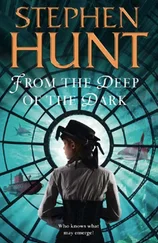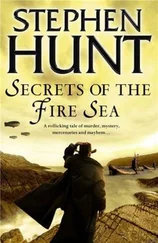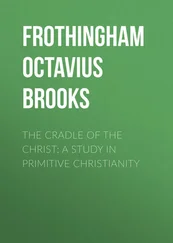Gabriel Hunt - Hunt Through the Cradle of Fear
Здесь есть возможность читать онлайн «Gabriel Hunt - Hunt Through the Cradle of Fear» весь текст электронной книги совершенно бесплатно (целиком полную версию без сокращений). В некоторых случаях можно слушать аудио, скачать через торрент в формате fb2 и присутствует краткое содержание. Год выпуска: 2011, Издательство: Dorchester Publishing Co., Inc., Жанр: Старинная литература, на английском языке. Описание произведения, (предисловие) а так же отзывы посетителей доступны на портале библиотеки ЛибКат.
- Название:Hunt Through the Cradle of Fear
- Автор:
- Издательство:Dorchester Publishing Co., Inc.
- Жанр:
- Год:2011
- ISBN:нет данных
- Рейтинг книги:3 / 5. Голосов: 1
-
Избранное:Добавить в избранное
- Отзывы:
-
Ваша оценка:
- 60
- 1
- 2
- 3
- 4
- 5
Hunt Through the Cradle of Fear: краткое содержание, описание и аннотация
Предлагаем к чтению аннотацию, описание, краткое содержание или предисловие (зависит от того, что написал сам автор книги «Hunt Through the Cradle of Fear»). Если вы не нашли необходимую информацию о книге — напишите в комментариях, мы постараемся отыскать её.
Hunt Through the Cradle of Fear — читать онлайн бесплатно полную книгу (весь текст) целиком
Ниже представлен текст книги, разбитый по страницам. Система сохранения места последней прочитанной страницы, позволяет с удобством читать онлайн бесплатно книгу «Hunt Through the Cradle of Fear», без необходимости каждый раз заново искать на чём Вы остановились. Поставьте закладку, и сможете в любой момент перейти на страницу, на которой закончили чтение.
Интервал:
Закладка:
“Your Mr. Burke knows I’m here?”
“I spoke to him while you were in the shower.”
“And he wants to see me now?”
“In a manner of speaking.”
“Why ‘in a manner of speaking’?”
“Come on,” she said, standing up. “We’ve lost enough time.”
“I want to know what you meant. He doesn’t want to see me?”
“I imagine,” she said, “that he would like to see you more than anything. But that’s hardly an option.”
“Any why is that?”
“His eyes, Mr. Stewart. He was blinded in North Africa.”
North Africa. The words brought a rush of painful memories. The press toward Libya, the desert winds in his throat, the baking heat, and in the middle of it all, between spells of tortured boredom, the moments of utter chaos: the mortar rounds tearing great gouts out of the sand, and out of the men who sped across it. So Burke had been an 8 thArmy man? And had paid for it dearly, though not so dearly as some.
“I’m sorry,” Malcolm said. “I was in that campaign myself.”
“I know you were,” she said. “It’s one of the reasons he selected you, though perhaps he’ll think better of it once he meets you.”
“That’s rather harsh, my dear.”
“Harsh? Look at you. And what he’ll ask of you, Mr. Stewart…it’s ever so much worse than dealing with those three in the pub.”
“I’ve dealt with worse.”
“Yes, but recently?” She waited, but he had no answer for her. “Now will you please follow me?”
He stepped out into the hall. She led him down to the main floor on a staircase wide enough to hold four men abreast. The building was deceptive: From the front as they’d come in it hadn’t looked nearly as big as it turned out to be once you were inside. There was money behind this Burke, generations of it. It didn’t show in ostentatious ways—no chandeliers dripping with crystal or gold leaf on the picture frames. But the pictures themselves looked like they’d fetch a pretty sum at auction, and the carpeting was the sort that costs as much as most people spend to furnish their entire homes.
They passed from the entry hall into a library, and on through a short connecting corridor into the kitchen, where a woman in a cook’s smock stood cutting potatoes into a copper kettle. She looked up as they passed. He thought he spied a look of pity in her eyes.
“Another, Miss Stiles?”
Margaret moved them along without slowing.
Malcolm looked back over his shoulder. The woman was still watching, knife at the ready, supper temporarily forgotten.
Malcolm didn’t say anything till they were out of earshot. “What did she mean, ‘another’?”
“Never mind her.” Margaret stopped at a closed door. She tugged on a brass pull set into the doorframe at eye level. He could hear a bell ring within and, moments later, a man’s voice called out. “Miss Stiles?”
“Yes.”
“Have you got Mr. Stewart with you?”
“Yes.”
“Bring him in.” It was a deep voice, muffled by the door, but strong, Malcolm thought, and self-confident. He was put in mind of his commanding officers from the army—it was the sort of voice you were trained to use when marshalling troops for a charge across a noman’s zone. Some men didn’t need to be trained, of course. They’d learned it in the nursery or had it bred into them from birth.
Margaret swung the door open. He was surprised to see no light behind it. She made no move to turn one on.
“Come in, Mr. Stewart,” the voice intoned. “Don’t let the darkness bother you. Miss Stiles will show you to a chair.” She took him by the arm and steered him through the room, navigating obstacles he could see only dimly. It was oddly damp in the room, as though a window had been left open, but the only windows he could make out appeared to be shut and heavily curtained.
“It’s for my eyes, you understand,” Burke said. “Dark, cool, moist—I’m afraid it’s the only way for me to be comfortable any longer.”
“I’m sorry,” Malcolm said.
“Come,” Burke said. “Sit by me, and Miss Stiles will join us.”
She put his hand on the arm of a chair, and he sat. Now that his eyes had begun to adjust, Malcolm could make out the outline of Burke’s face where he sat two feet away. He wore a beard, and his hair curved up from his forehead in uneven curls. The man leaned forward with his left hand out. Malcolm took it. Burke’s grip was firm.
“What happened?” Malcolm said. “To your eyes, I mean. Shrapnel? Or fire?”
For a moment, Burke didn’t say anything, and Malcolm thought perhaps he’d crossed a line. But for Christ’s sake, the man had brought the subject up himself. And after all, hadn’t Malcolm served in the same campaign, hadn’t he seen plenty of friends lose eyes and worse—?
“No,” Burke said. “Not shrapnel, nor fire, nor any of the other causes you’d imagine. I’ll tell you what happened, Mr. Stewart, but that is the end of the story, not the beginning. Miss Stiles, could you turn up the fan? Thank you.”
Malcolm heard Margaret’s footsteps retreat and return. A mechanical hum he hadn’t noticed before got louder, and he felt the air stir.
Burke leaned forward with his forearms on his knees. Malcolm could see he wasn’t wearing anything over his eyes—no dark glasses, no patch. He didn’t seem to blink, either. Of course, perhaps he had glass eyes…but no, that wouldn’t explain the need to sit in the dark and keep things as damp and cool as a cellar.
“Mr. Stewart, I want to thank you for hearing me out. I need your help. Or to put it another way, I need the help of someone who knows his way around a part of the world I understand we have in common. Someone who’s not easily frightened or put off the scent. I’ve asked around and people think highly of you.”
“You must not have asked anyone in town,” Malcolm said. “You’d have gotten a different picture.”
“Yes, Miss Stiles told me about the scene in the pub. Most regrettable. You drink too much, Mr. Stewart.”
“Or not enough.”
“More and you’d be dead of it, and no use to me. Let’s not fence with each other, shall we? You were a good man once. I heard it from men I trust. Until your wife died, I gather, and since then it’s been one long bender, hasn’t it?”
Malcolm flinched. “Not so long.”
“Three years, man. And you once a good soldier. Where’s your backbone?”
“I left it behind in the sand,” Malcolm said, “where you left your eyes.”
“Nonsense. You’ve still got a spine, man, you’ve just let it soften in that embalming fluid you insist on pouring into yourself. If you’re to work for me, you’ll do it dry, you understand?”
The voice of command—Malcolm almost felt himself sitting up straighter in response, against his will. “And am I to work for you?”
“I hope to god you are—I’ve exhausted everyone else.”
“What is it you want done? I don’t see you as the type to raise a private army, and I’m out of the soldiering business anyway.”
“No. I’ve never been a soldier myself. What I have been—what I am, Mr. Stewart—is a student of history. When I went to North Africa it was not because of the war but in spite of it. I wasn’t part of the military action, I was there on my own, pursuing one of the greatest mysteries of the ancient world.”
“Greatest mysteries of the ancient world”? The man sounded like a radio program. But he had a job to offer, apparently, and such offers were not plentiful these days.
“I understand,” Malcolm said. “You were in Africa hunting something, but instead of finding it, you came across the military action instead?”
“No, Mr. Stewart. I found what I was looking for. I found it exactly where I thought it would be. I saw it with my own eyes. I’d searched for a decade and more, and by god, I found it.” He fell silent.
Читать дальшеИнтервал:
Закладка:
Похожие книги на «Hunt Through the Cradle of Fear»
Представляем Вашему вниманию похожие книги на «Hunt Through the Cradle of Fear» списком для выбора. Мы отобрали схожую по названию и смыслу литературу в надежде предоставить читателям больше вариантов отыскать новые, интересные, ещё непрочитанные произведения.
Обсуждение, отзывы о книге «Hunt Through the Cradle of Fear» и просто собственные мнения читателей. Оставьте ваши комментарии, напишите, что Вы думаете о произведении, его смысле или главных героях. Укажите что конкретно понравилось, а что нет, и почему Вы так считаете.












